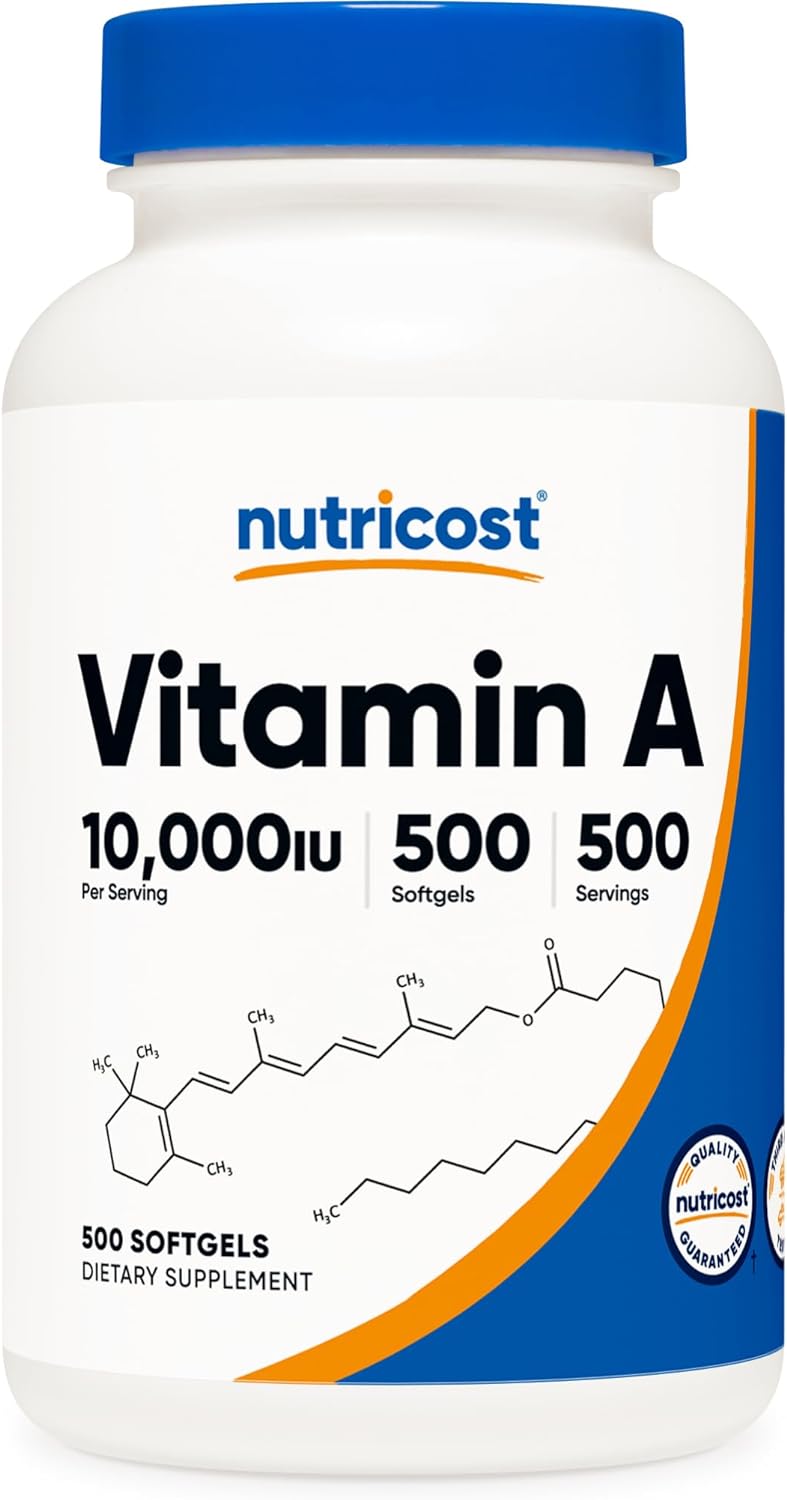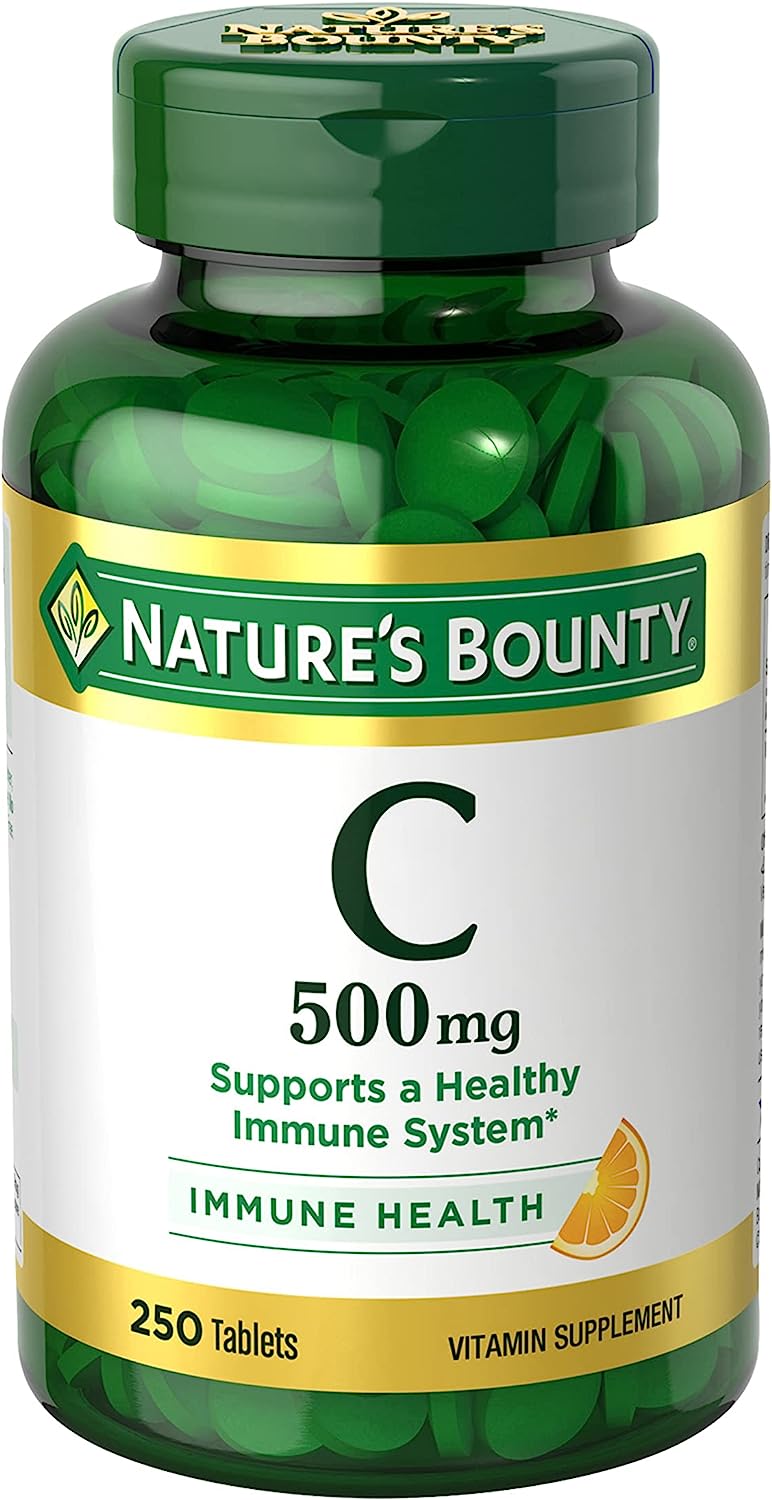From A to Zinc: The Complete Guide to Vitamins for Acne-Prone Skin
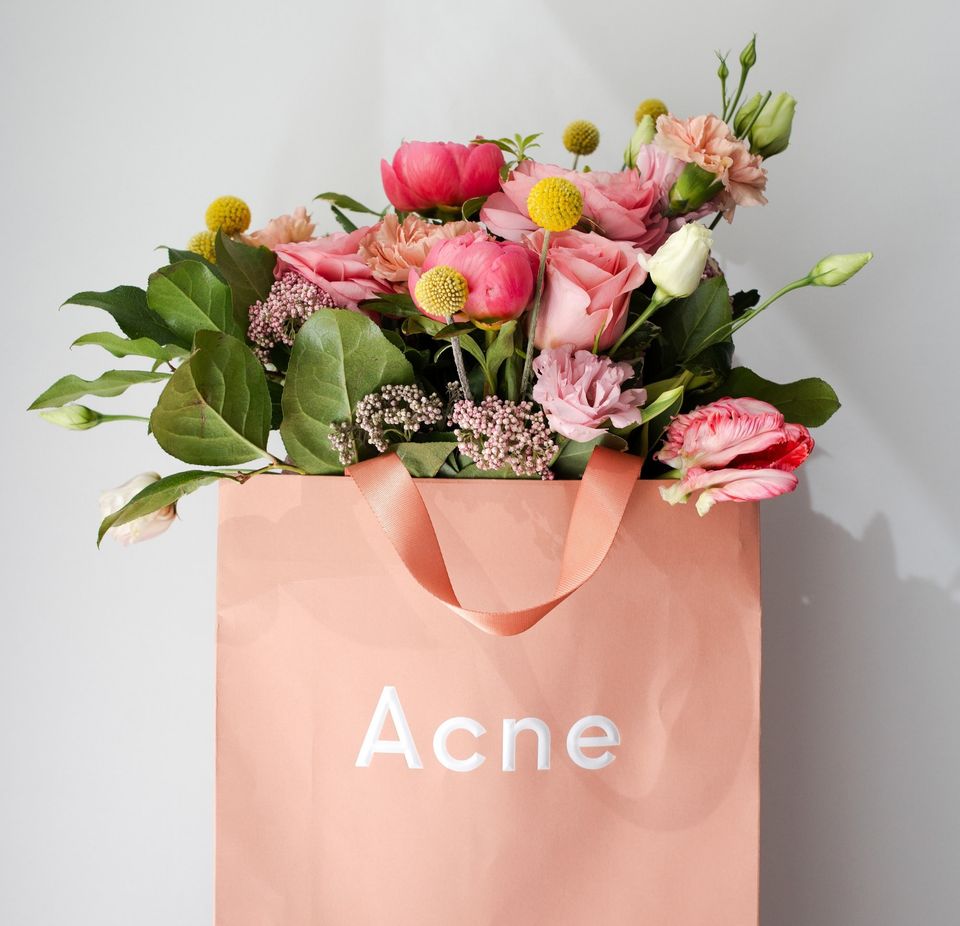
Discover the power of vitamins and minerals for clearer, healthier skin!
Are you struggling with acne? Did you know that vitamins play a crucial role in maintaining healthy and glowing skin? They team up to keep your skin looking its best. But here's the catch - not all vitamins are created equal.
When it comes to saying goodbye to pesky acne, some vitamins pack a bigger punch than others. In this blog post, we'll be talking about some amazing vitamins that can help improve your skin health and fight acne.
We'll cover a variety of vitamins, including Vitamin A, C, E, D, and zinc. Learn about the science behind each nutrient, how it can benefit your skin, and the best ways to incorporate it into your skincare routine and your diet.
Our goal is to help you understand how these vitamins work to benefit your skin and how you can easily incorporate them into your daily routine for glowing and healthy skin. So, let’s get started!
5 Things You Need To Know About Acne
What the research shows
We did some research on vitamins and minerals, as well as the causes of acne. Let's delve into what we found!
1. Acne is a common skin condition
Acne affects millions of people worldwide, and it is the most common skin condition in the United States. It occurs when hair follicles become clogged with oil and dead skin cells, leading to pimples, blackheads, and whiteheads.
2. There are different types of acne
There are several types of acne, including comedonal acne, inflammatory acne, nodular acne, and cystic acne, acccording to the American Academy of Dermatology Association.
Comedonal acne is the mildest type and is characterized by blackheads and whiteheads. Inflammatory acne is more severe and can cause redness, swelling, and pain.
Nodular and cystic acne are the most severe types and can lead to scarring.
Hormonal acne in women is a type of acne that occurs when hormonal fluctuations in the body trigger an increase in sebum production and excess oil production can lead to clogged pores and breakouts.
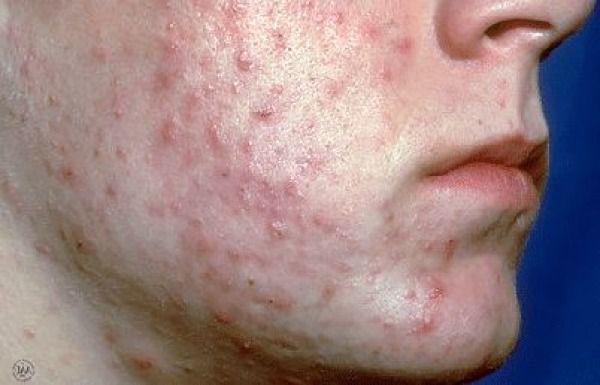
3. Acne can have psychological effects
Acne can have a significant impact on a person's mental health. It can lead to anxiety, depression, and social isolation. Acne can also affect self-esteem and confidence.
4. There are many factors that contribute to acne
Acne is caused by a combination of factors, including genetics, hormones, stress, diet, and skincare products. Hormonal changes during puberty, pregnancy, and menstruation can trigger acne. Stress can also cause hormonal changes that can lead to acne. Certain foods, such as dairy and sugar, have been linked to acne as well.
5. How Dermatologists Approach Acne Treatment
There are numerous treatments available for acne, including both topical treatments such as creams and gels, oral medications, and skincare products.
Topical retinoids
Topical retinoids, can help to unclog pores and prevent new breakouts from forming.
Oral medications
Oral medications, such as birth control pills and spironolactone, can help to regulate hormone levels and reduce sebum production that has overall benefit for women's health. High doses of certain vitamins can affect hormone levels, including androgen production and testosterone levels, which can in turn affect acne.
It's important to note that specific vitamins may have different effects on hormone levels and acne.
Additionally, hormone imbalances can contribute to acne and other skin concerns, so working with a healthcare professional to address any hormonal imbalances can be beneficial.
Over-the-counter products
Over-the-counter products containing benzoyl peroxide, salicylic acid, and alpha hydroxy acids can be effective for mild to moderate acne. For more severe cases, a dermatologist may prescribe stronger medications or recommend procedures such as chemical peels, laser therapy, or corticosteroid injections.
So, make sure your consult with any board-certified dermatologist before starting any oral vitamin supplements or any topical treatments, as too much of certain vitamins can be harmful.
Probiotics
Beneficial bacteria, also known as probiotics, boasts anti-inflammatory effects and have been shown to have a variety of health benefits, including for skin health. They can help to regulate the sebaceous glands, reducing the likelihood of clogged pores and promoting healthy skin.
Gut health and hormone balance can also play a role in skin health. Maintaining a healthy gut can help to reduce inflammation in the body, which can in turn reduce inflammation in the skin.
Fermented foods, which contain beneficial bacteria, can promote a healthy gut microbiome and help to address skin issues like acne. These foods include kimchi, kefir, and sauerkraut, among others.
Retinol 101: Everything You Need to Know About the Powerhouse Vitamin A for Skin health
Did you know that Vitamin A, also known as retinol, is super important for keeping your skin healthy?
It helps your skin grow and repair, and also regulates the production of sebum, which can cause acne if there's too much of it and due to acne-causing bacteria.
How it works
Vitamin A can be a great way when addressing acne! It works by clearing out your pores and preventing new breakouts from forming. The anti-inflammatory properties of this vitamin can help calm down redness and irritation, fighting inflammation caused by acne and other skin conditions.
Using topical retinol has been known to reduce your skin's natural UV protection, so use a good sun protecting cream. You can also use it as an oral vitamin treatment.
Best food sources of Vitamin A
The best food sources of vitamin A include liver, eggs, and dairy products. You can also find it in yummy orange-colored fruits and veggies like carrots, sweet potatoes, and cantaloupes. And for all you leafy green lovers out there, spinach and kale are packed with vitamin A too!
An essential nutrient, the RDA (recommended daily intake) that adults should consume is between 700-900 micrograms per day, depending on their age and gender.
What you should know
But, it's important to keep in mind that too much of a good thing can be harmful. In fact, excessive intake of Vitamin A can be toxic, so it's best not to exceed the recommended daily dose.
And if you're expecting, it's extra important to be cautious because high doses of Vitamin A can be harmful to your developing baby. Be careful to read the international unit (IU) per serving.
Here are some reliable over-the-counter products:
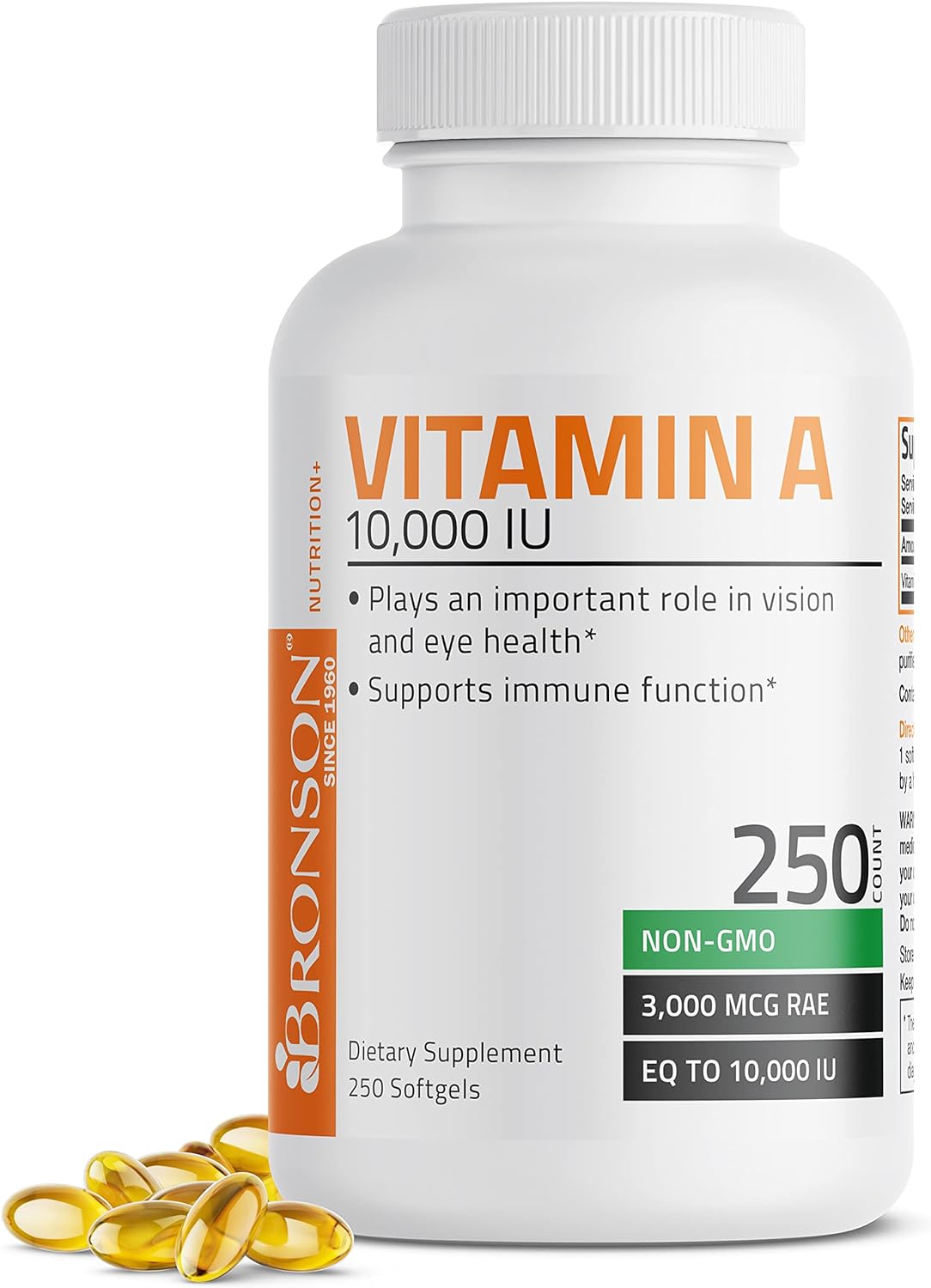
Bronson Vitamin A, 10,000 IU
Helps promote healthy skin , eye, hair, nerve, liver and muscle tone in the gastrointestinal tract
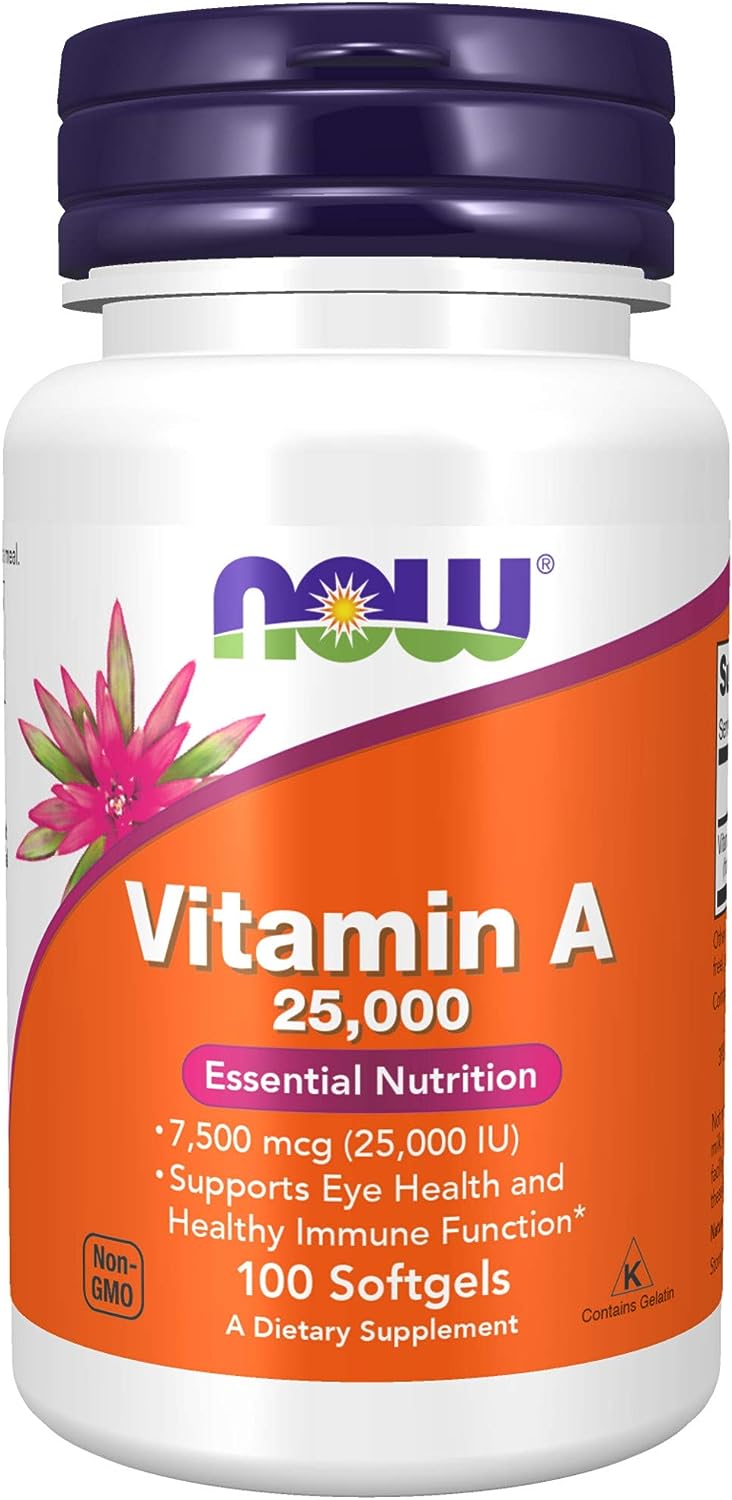
Now Vitamin A, 25,000 IU
Delivers 25,000 IU of vitamin A (fish liver oil) in one softgel serving.
The Superhero of Antioxidants: The Power of Vitamin C
Vitamin C, also known as ascorbic acid, is an amazing water-soluble vitamin that can work wonders for your skin? This little nutrient plays a vital role in keeping your skin healthy and glowing. How so?
How it works
Vitamin C is an awesome antioxidant that helps to protect your skin from damage caused by free radicals. It is also essential for the production of collagen, a protein that helps to keep the skin firm and elastic.
Collagen also plays a role in the healing of acne scars and other skin damage as it helps to reduce inflammation and redness associated with acne lesions. It can also help to reduce the appearance of acne scars over time.
Best food sources of Vitamin C
The best food sources of vitamin C include citrus fruits, such as oranges and grapefruit, as well as kiwi, strawberries, and red bell peppers. Leafy green vegetables, such as broccoli and spinach, also contain high levels of vitamin C.
The recommended daily intake of vitamin C for adults is 75-90 milligrams per day, depending on age and gender. There are some studies that indicate that taking higher doses of vitamin C could be super helpful for boosting your skin's health.
What you should know
Just a friendly reminder that too much vitamin C can sometimes cause tummy troubles and other side effects. It's generally safe to consume high doses of vitamin C from food sources, but supplements should be taken with caution and under the guidance of a healthcare provider.
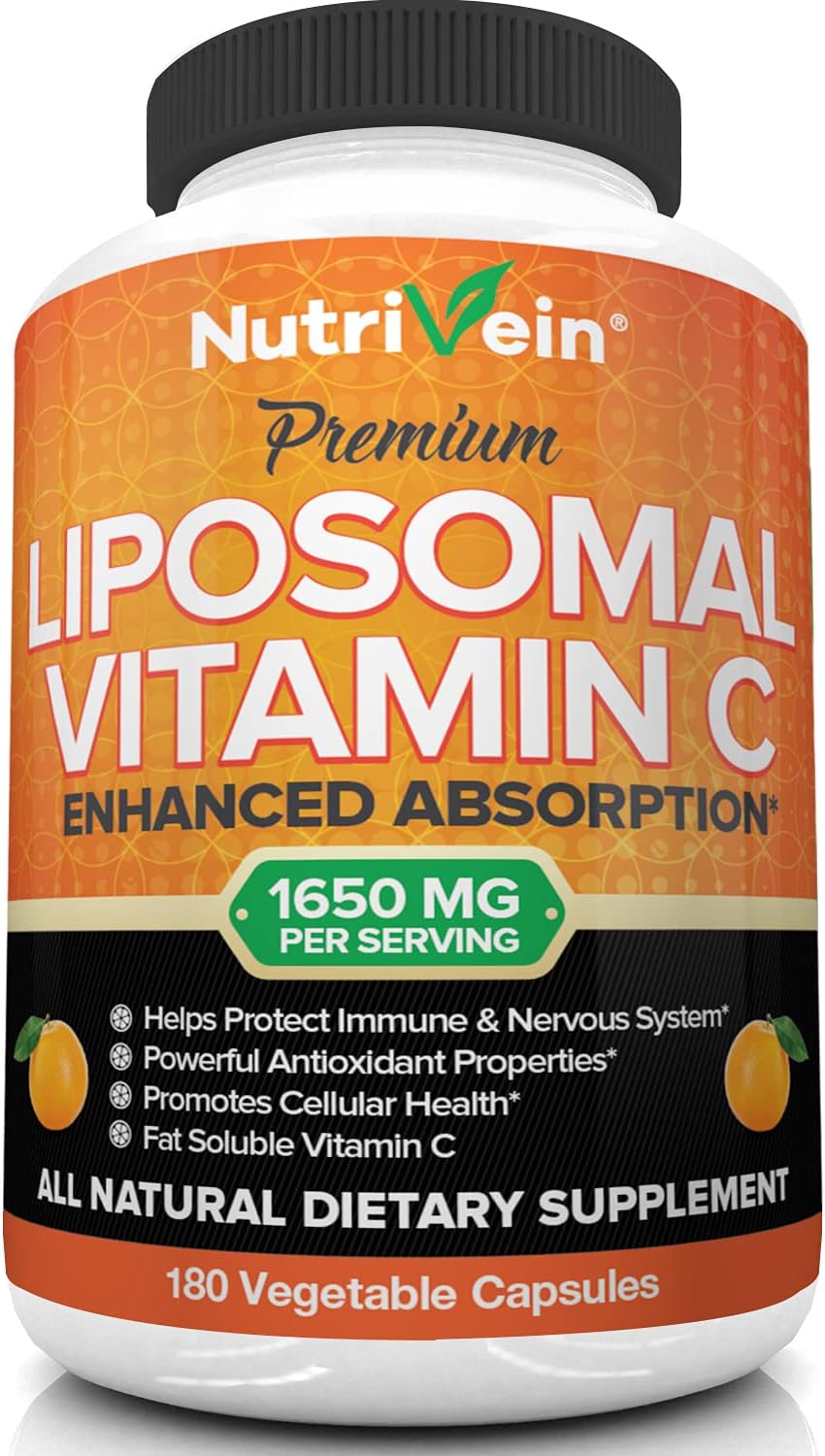
Nutrivein Liposomal Vitamin C, 1650mg
High-Absorption Ascorbic Acid: Boosts Immune System and Collagen Production - Potent Antioxidant
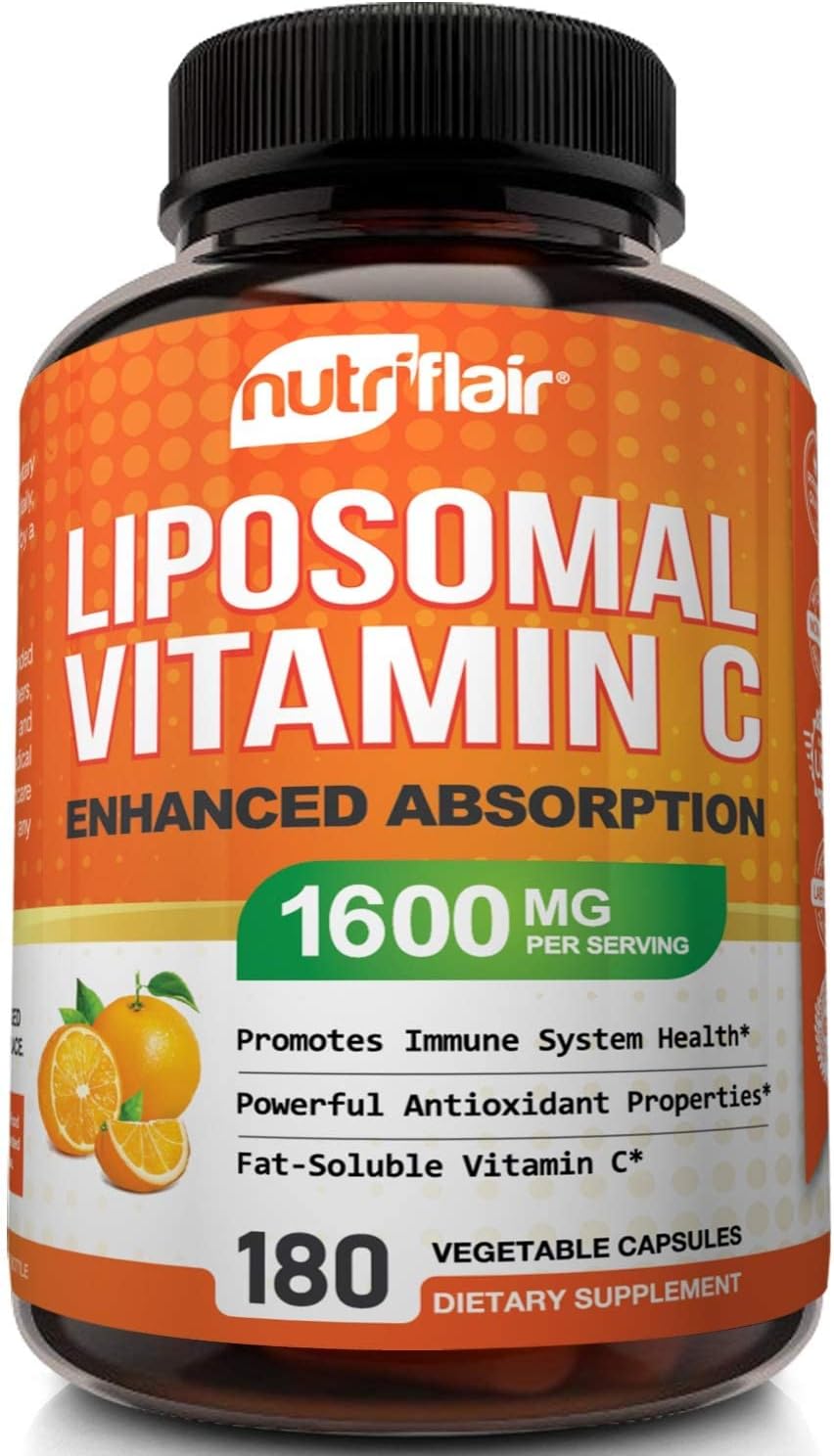
NutriFlair Liposomal Vitamin C 1600mg
High Absorption, Fat Soluble VIT C, Antioxidant Supplement, Higher Bioavailability Immune System Support & Collagen Booster, Non-GMO, Vegan Pills.
The Sunshine Vitamin: How Vitamin D Can Clear Your Acne
Vitamin D is also a fat-soluble vitamin that is necessary for healthy skin. It's essential for regulating cell growth and differentiation, and can help to reduce inflammation associated with acne.
Research has shown that people with acne tend to have lower levels of vitamin D compared to those without acne. While the exact mechanism behind this link is not fully understood, it's thought that vitamin D may help to reduce the overproduction of sebum, which can contribute to the development of acne.
How it works
I think you already know that sunlight is one of the best sources of vitamin D, but it bears repeating? When your skin is exposed to UV rays, it can produce vitamin D. During the winter months or in areas with limited sun exposure, it can be tough to get enough vitamin D from sunlight alone.
Best food sources of Vitamin D
Luckily, there are also some foods that are high in vitamin D, like salmon, tuna, egg yolks, and fortified dairy products. But sometimes it can still be hard to get enough vitamin D from food alone. In these cases, supplements might be needed to meet your daily needs.
What you should know
The recommended daily intake of vitamin D for adults is 600-800 IU per day, depending on age and gender. Get sunshine daily, to rejuvenate your natural vitamin D as some studies suggest that higher doses of vitamin D may be beneficial for improving skin health.
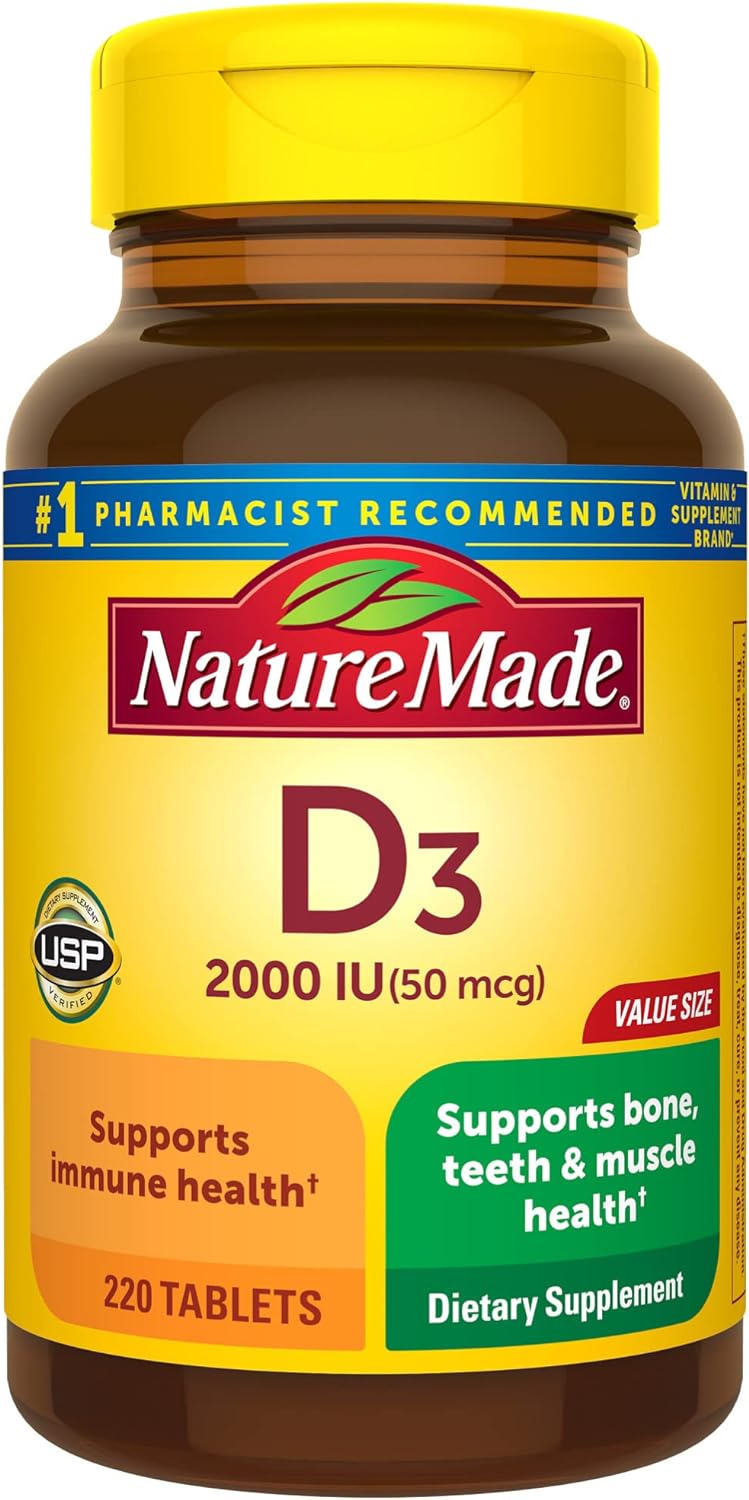
NatureMade Vitamin D3, 2000 IU
Dietary Supplement for Bone, Teeth, Muscle and Immune Health Support
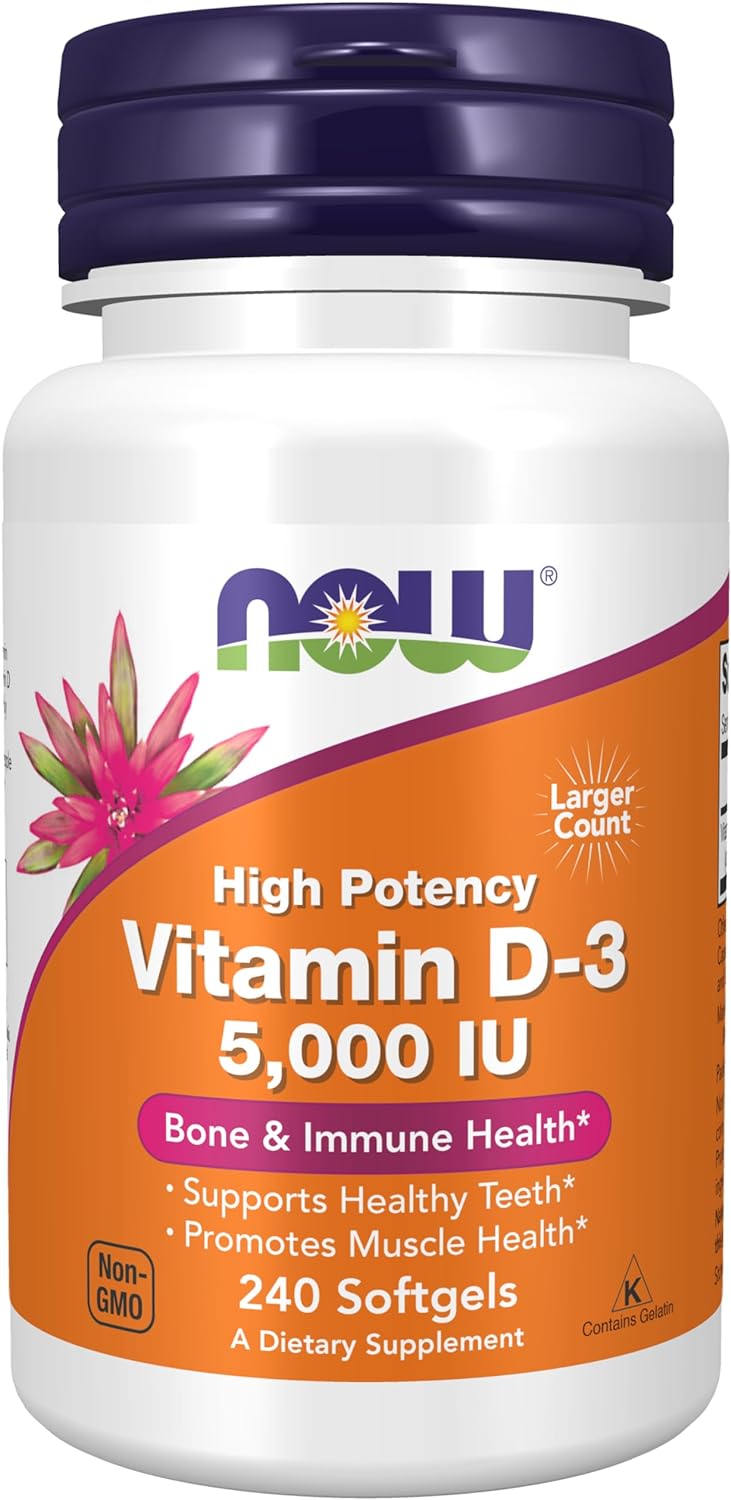
Now Foods Vitamin D-3, High Potency, 125 mcg (5,000 IU)
Larger Size for Enhanced Structural Support, Strong Bones, and a Robust Immune System - Non-GMO
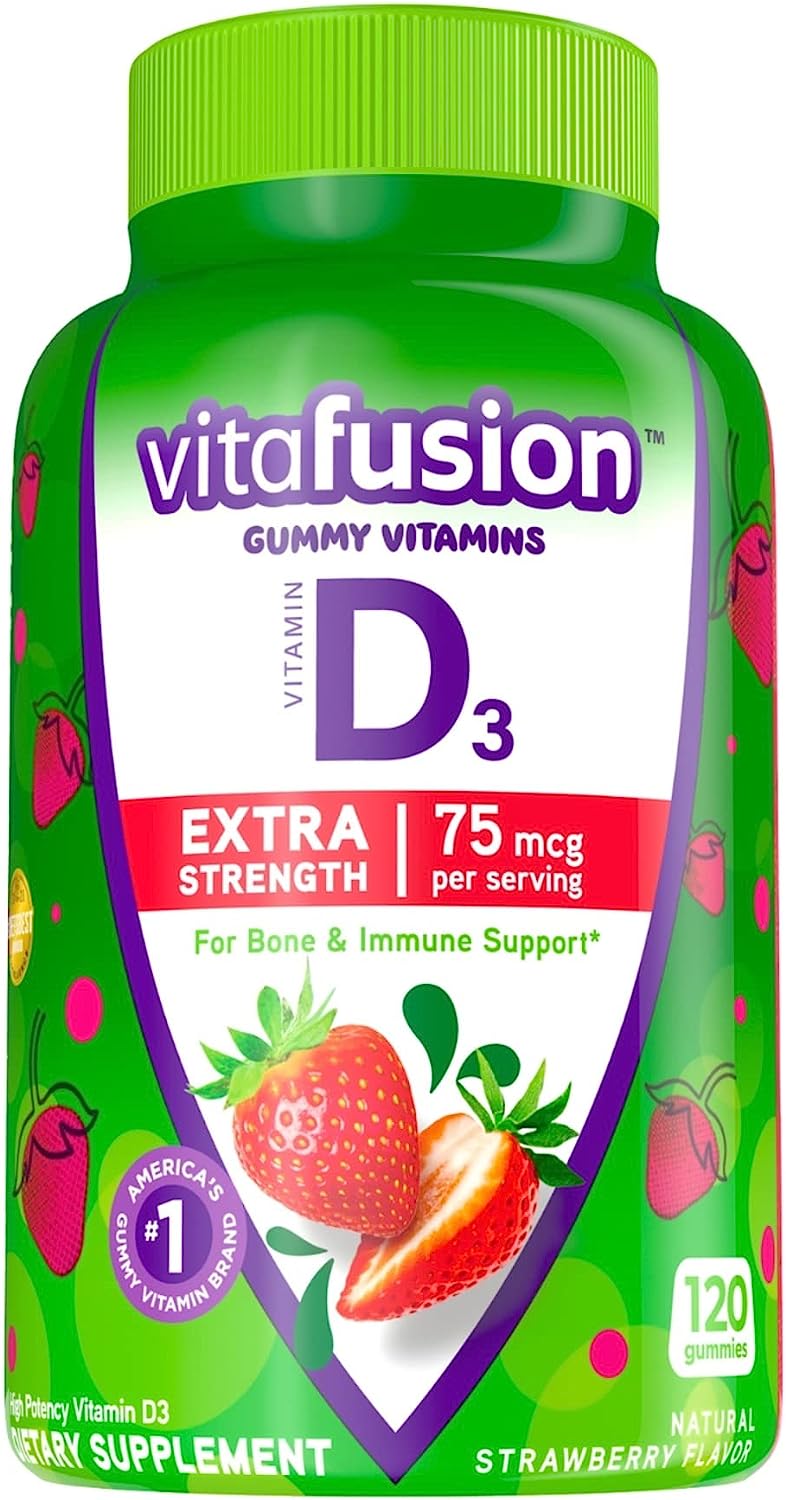
Vitafusion Extra Strength Vitamin D3 Gummy
Strawberry Flavored Bone and Immune System Support
Say Goodbye to Skin Damage with Vitamin E
Vitamin E is a must-have for promoting healthy skin cell growth and repair and used for acne treatments. It's a type of vitamin that dissolves in fat and helps protect your skin from damage caused by free radicals, which can lead to acne.
It can even help reduce the redness and inflammation that come with severe acne breakouts, and over time, it may even help clear skin from those pesky acne scars.
How it works
Studies have shown that applying vitamin E topically can help reduce the severity of acne lesions. Also, taking topical or oral vitamin E supplements can help reduce inflammation and improve overall clearer skin and skin health.
Best food sources of Vitamin E
If you're looking for some vitamin E-rich foods, some delicious options for you are nuts and seeds like almonds, sunflower seeds, and hazelnuts are great choices. You can also find vitamin E in vegetable oils such as sunflower and safflower oil. And don't forget about leafy greens like spinach and broccoli - they're also packed with this important nutrient!
What you should know
It's recommended that adults get 15 milligrams of vitamin E per day, but did you know that some studies have found that higher doses of vitamin E might be super helpful for improving skin health?
But, taking too much of it can actually be harmful, so it's super important to stick to the recommended daily dose. And if you're on blood thinners or have any medical issues, it's always a good idea to chat with your healthcare provider before starting any new supplements.
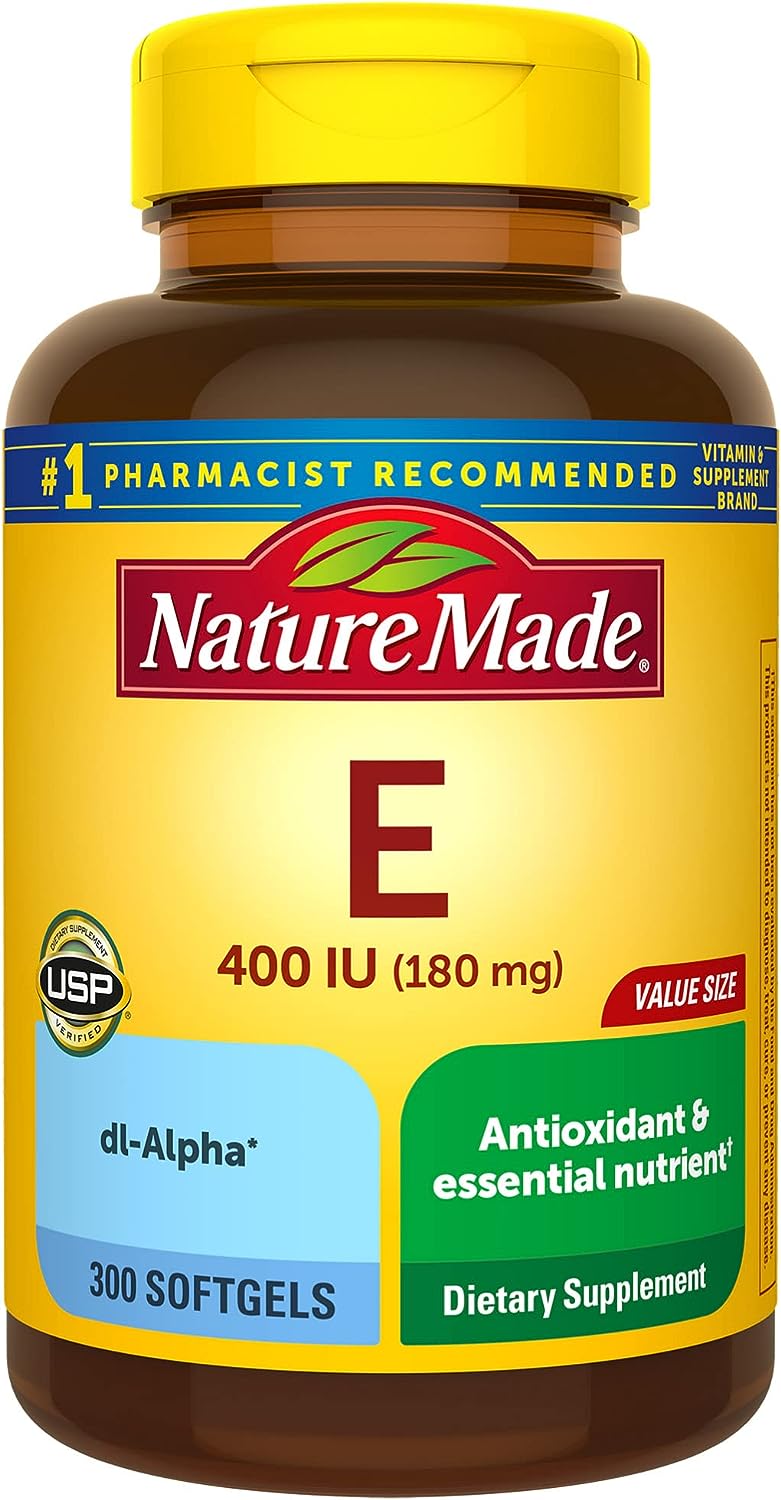
Nature Made Vitamin E 180 mg (400 IU) dl-Alpha
300 Softgel Dietary Supplement for Enhanced Antioxidant Support
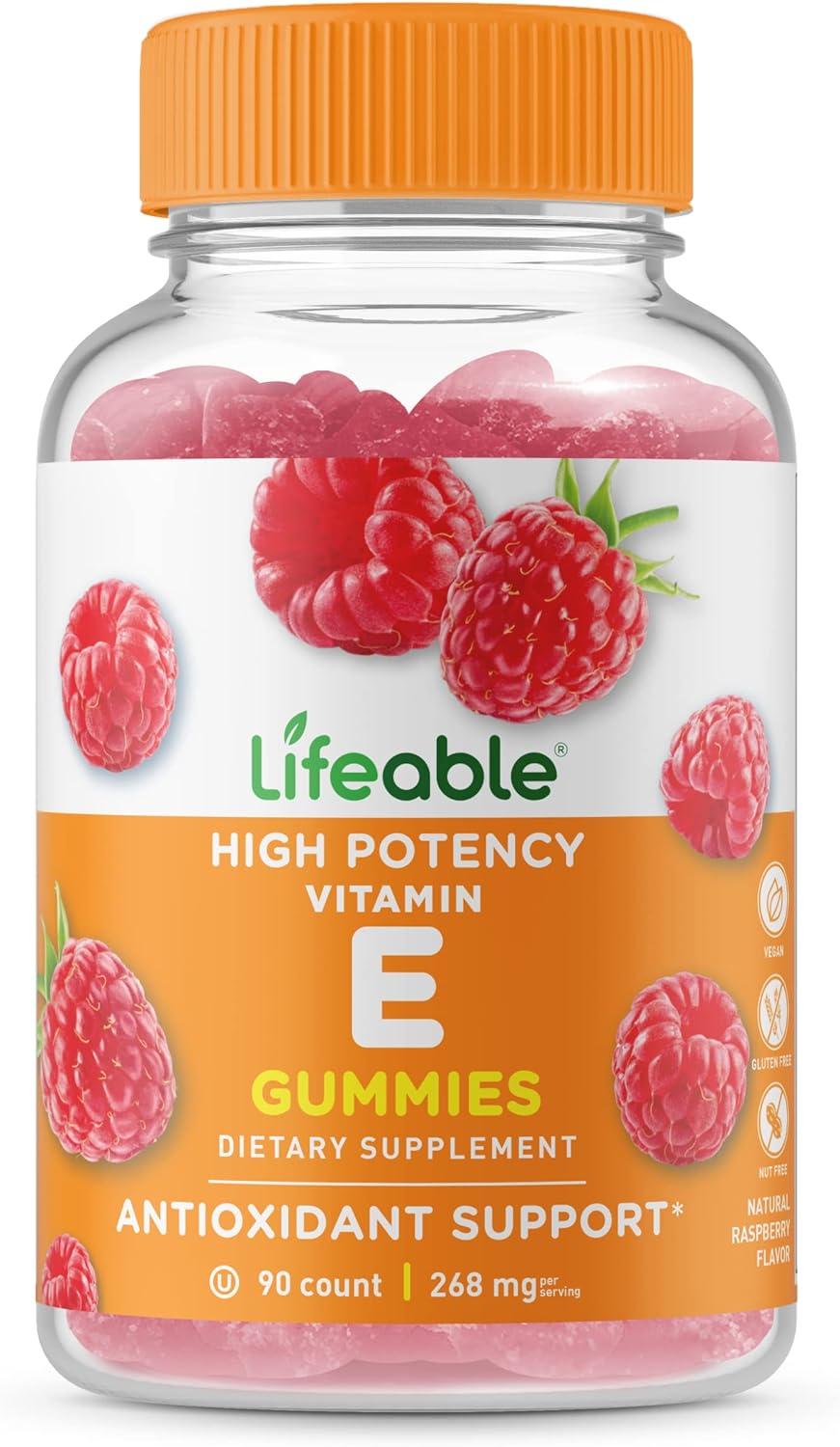
Lifeable Vitamin E 268mg
Delicious Natural Flavor Gummy Supplement - Vegetarian and GMO-Free Chewable Vitamins - Promoting Eye Health and Cardiovascular Support.
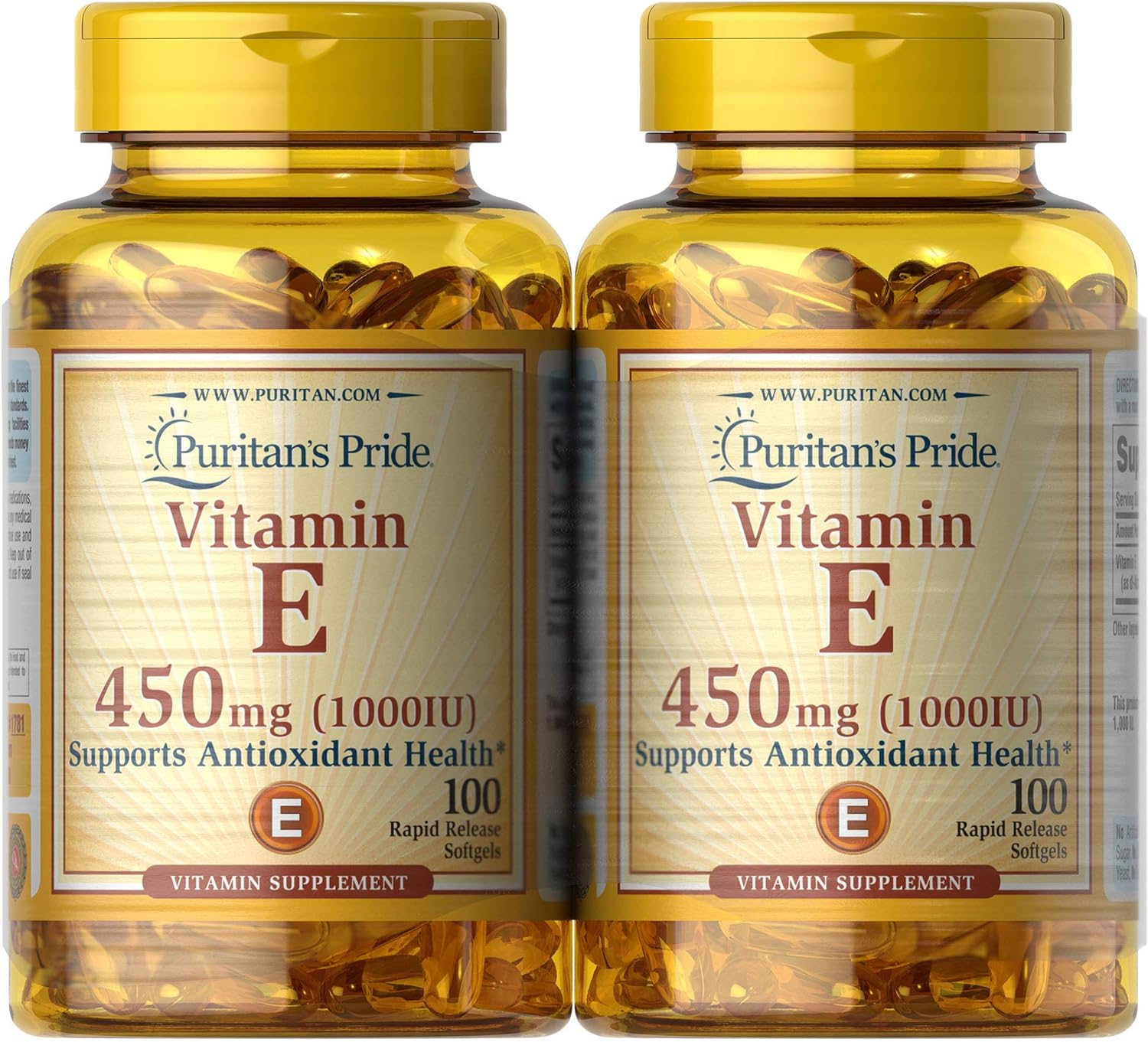
Puritan's Pride Vitamin E Supports Immune Function, 450 mg
Premium Antioxidant Supplement for Enhanced Immune Support - Gluten-Free
Zinc: The Mineral Miracle for Clearer Skin
Zinc is an awesome nutrient for keeping your skin healthy and reducing inflammation associated with acne.
How it works
Zinc helps regulate the production of sebum, which is a greasy substance that can block your pores and lead to breakouts. Zinc has been shown to play a role in wound healing and energy metabolism, as well as fighting inflammation. If you're struggling with acne, your body might be low on zinc?
Best food sources of Zinc
But this is no cause for alarm, there are easy ways to get more zinc into your diet! Foods like oysters, beef, pork, beans, nuts, and whole grains are all great sources.
What you should know
You can also consider zinc supplementation, but just make sure you don't go overboard and take too much zinc - that can be harmful. Keep it balanced and you'll be on your way to healthier skin!
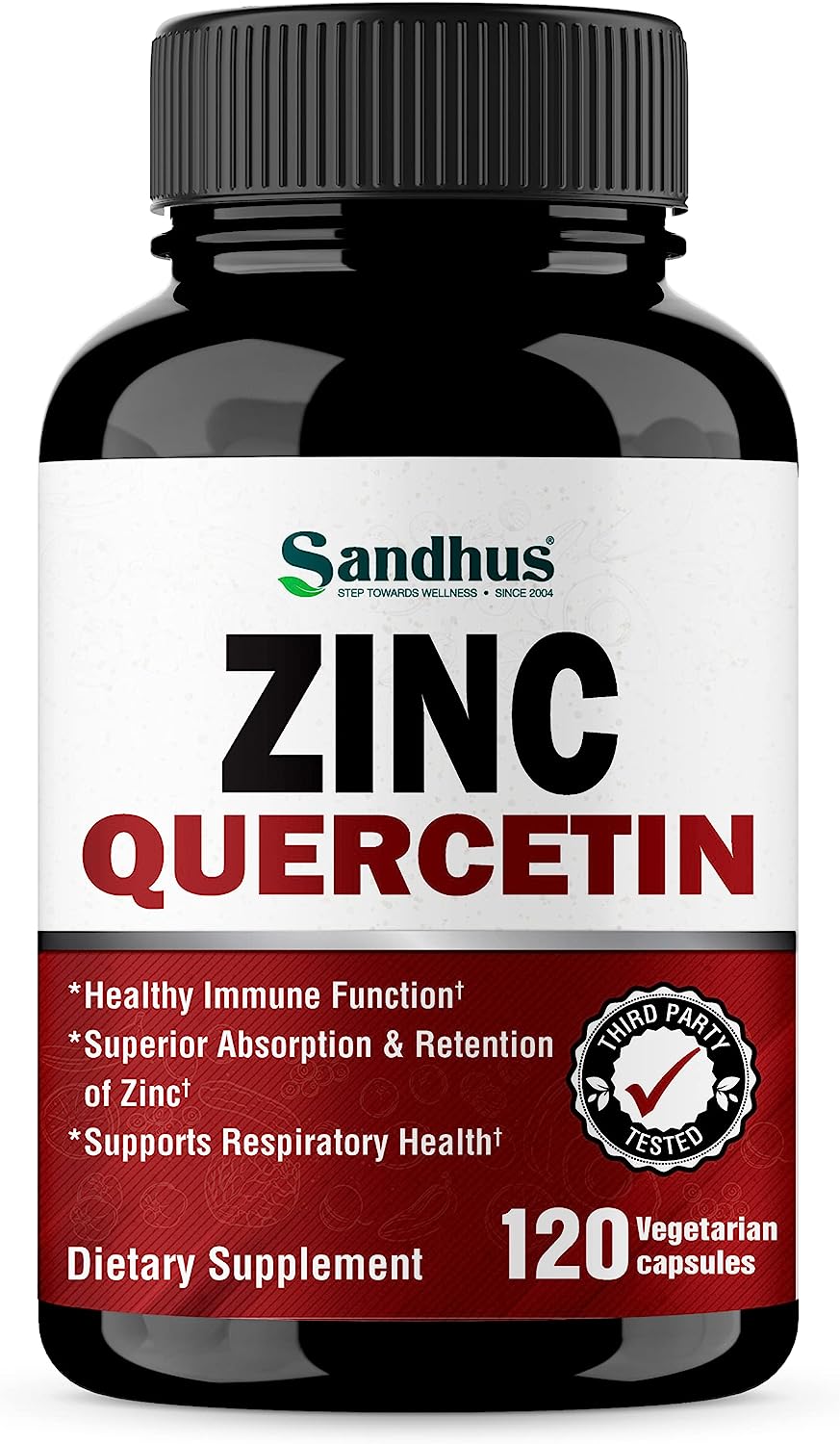
Sandhus Zinc Quercetin 120 Vegetarian Capsules
The powerful combination of quercetin and zinc works together to effectively neutralize free radicals, reducing oxidative stress for a robust immune system and enhanced respiratory health."
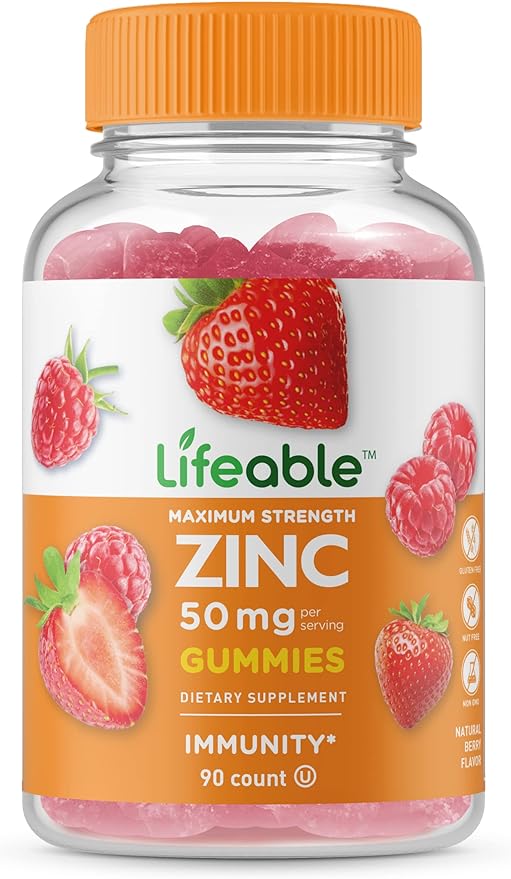
Lifeable Zinc 50mg Gummies
Delicious Natural Flavor Gummy Supplement - Gluten-Free, Vegetarian, Non-GMO, Chewable Vitamins - Enhancing Immune Support.
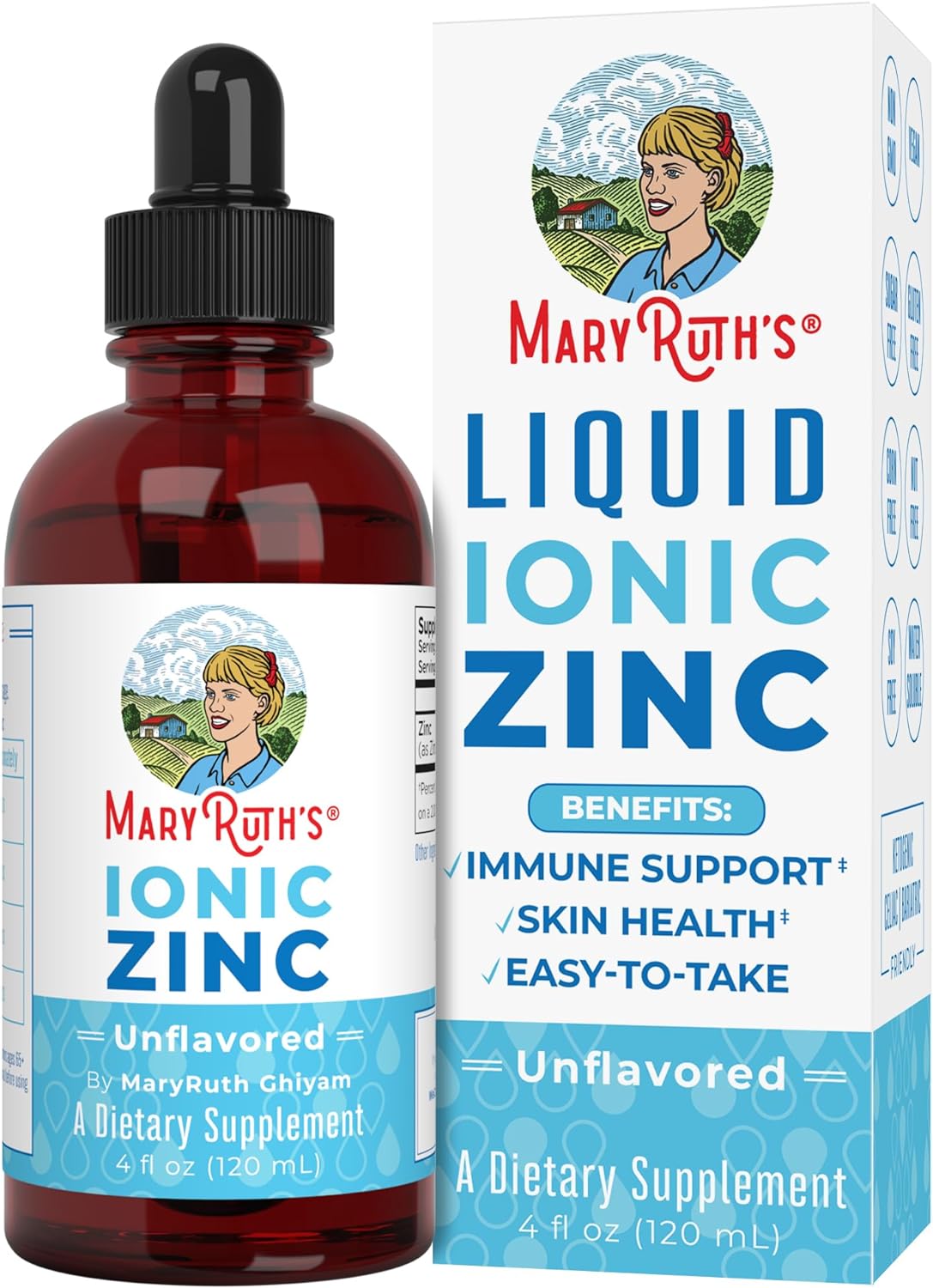
MaryRuth's Ionic Liquid Zinc Drops | Liquid Zinc Supplement
Enhancing Immune Health and Skin Vitality | Ionic Zinc Suitable for Kids and Adults | Vegan | Non-GMO Zinc Sulfate Formula
Beyond Zinc: Other Vitamins and Minerals That Combat Acne
In addition to vitamin A, C, D, E, and zinc supplements, there are several other vitamins and minerals that may help to improve acne-prone skin.
B vitamins, particularly vitamin B3 (niacin) and vitamin B5 (pantothenic acid), have been studied for their potential to improve skin health and reduce acne breakouts, acne scars and rejuvenate your skin.
Vitamin B3 (Niacinamide)
This vitamin has anti-inflammatory properties and can help to reduce redness and inflammation associated with acne breakout. It may also help to regulate sebum production and improve the appearance of pores which is good when treating acne.
Vitamin B3 has been shown to stimulate the production of collagen, which is a protein that helps to support the skin's structure and can improve the appearance of acne scars. Promoting skin cell growth, this vitamin may also help to protect the skin from damage caused by UV rays.
Vitamin B5 (Pantothenic acid)
This vitamin may help to regulate sebum production and reduce the severity of acne lesions.
Vitamin B6 (Pyridoxine)
When it comes to acne, hormonal imbalances are often a major culprit. Fluctuations in hormone levels, particularly androgens like testosterone, can lead to increased sebum production and clogged pores, leading to pesky pimples.
This vitamin is involved in hormone regulation, and may help to reduce the hormonal fluctuations that can contribute to acne breakouts.
Treating Acne Scars with B Vitamins
Acne scars can be a frustrating and persistent problem for many people. While there are a variety of treatments available, some people have turned to B vitamins as a potential solution.
One of the ways that B vitamins may help to treat acne scars is by promoting the growth and repair of skin cells. Vitamin B3, for example, has been shown to stimulate the production of collagen, which is a protein that helps to support the skin's structure and can improve the appearance of scars.

In addition to promoting skin cell growth, some B vitamins may also help to protect the skin from damage caused by UV rays. Vitamin B3, for example, has been shown to enhance the skin's natural UV protection, which can help to prevent further damage and promote healing.
One of the ways that B vitamins may help to treat acne scars is by promoting the growth and repair of skin cells. Vitamin B3, for example, has been shown to stimulate the production of collagen, which is a protein that helps to support the skin's structure and can improve the appearance of scars.
In addition to promoting skin cell growth, some B vitamins may also help to protect the skin from damage caused by UV rays. Vitamin B3, for example, has been shown to enhance the skin's natural UV protection, which can help to prevent further damage and promote healing.
While B vitamins may be helpful in treating acne scars, it's important to note that they should be used as part of a comprehensive acne treatment plan. Topical vitamin E and other topical treatments may also be beneficial for reducing the appearance of scars and improving overall skin health.
Other Acne-fighting Nutrients You Might be Overlooking
We've done some research and found some vitamins and minerals that could potentially help you in your battle against acne. Want to check it out?
Selenium
This mineral is an antioxidant that can help to protect the skin against damage from free radicals. It may also help to reduce inflammation associated with acne.
Omega-3 Fatty Acids
These essential fatty acids found in fish oil are anti-inflammatory and can help to reduce inflammation associated with acne. They may also help to regulate sebum production and improve overall skin health.
Copper
Copper is an essential mineral that plays a role in many bodily functions, including skin health. Copper deficiency can lead to a variety of skin conditions, such as hyperpigmentation, acne, and dryness. But copper deficiency is rare in developed countries and is more commonly seen in individuals with specific medical conditions.
Topical Vitamin Treatments for Acne and Skin Health
Topical vitamins have gained popularity as a natural and effective way to treat acne and promote healthy skin. When applied directly to the skin, vitamins can provide numerous benefits, including anti-inflammatory properties that can help to reduce redness and inflammation associated with acne.
Vitamin A, in particular, has been shown to be effective in treating acne when applied topically. It helps to regulate sebum production, reduce inflammation, and promote skin cell turnover. Other vitamins, such as vitamin C and E, also have anti-inflammatory properties that can help to improve the appearance and health of the skin.

When choosing a topical vitamin treatment for acne and skin health, it's important to look for products that are formulated with high-quality ingredients and that have been clinically tested. Some popular topical vitamin treatments for acne include retinol creams, vitamin C serums, and vitamin E oils.
Retinol creams, which contain vitamin A derivatives, work by increasing cell turnover and reducing the production of sebum, which can contribute to acne breakouts. Vitamin C serums, on the other hand, can help to brighten the skin and reduce the appearance of dark spots and acne scars, while also providing antioxidant protection. Vitamin E oils can help to moisturize the skin and reduce inflammation, making them a great choice for those with dry or sensitive skin.
While there is limited scientific evidence to support the use of vitamin E for severe acne, some studies have shown that topical or oral supplements of vitamin E may help to improve the overall appearance of the skin and promote clearer skin. Oral supplements of vitamin E may also be beneficial for the skin, particularly when taken in combination with other vitamins, such as vitamin D and vitamin C to achieve clear and healthy skin.
🎁 While there is some scientific evidence to suggest that certain vitamins can help clear acne, it's important to approach these claims with caution and to look for well-designed clinical research to support any specific vitamin's effectiveness in treating acne.
🎁 It's also important to remember that taking vitamins alone may not be enough to clear acne, and other factors such as diet, skincare routine, and stress management may also play a role in improving skin health.
🎁 Maintaining good immune health can also play a role in improving skin health and reducing acne. Getting your vitamins and minerals is easy with a balanced diet that includes a variety of foods like whole grains, nuts, seeds, fruits, and veggies.
🎁 Staying hydrated, and getting enough sleep can all help to support the body's natural functions and reduce inflammation. If you're looking to supplement, it's always a good idea to chat with your healthcare provider first to make sure you're getting what you need.
Dietary Supplements - Please Note
Dietary supplements have not been evaluated by the FDA and are not intended to diagnose, treat, cure, or prevent any disease or health condition. Please consult your medical practitioner for treatment advise.
References
- What can Clear Severe Acne? American Academy of Dermatology Association.https://www.aad.org/public/diseases/acne/derm-treat/severe-acne, accessed 25.10.2023.

